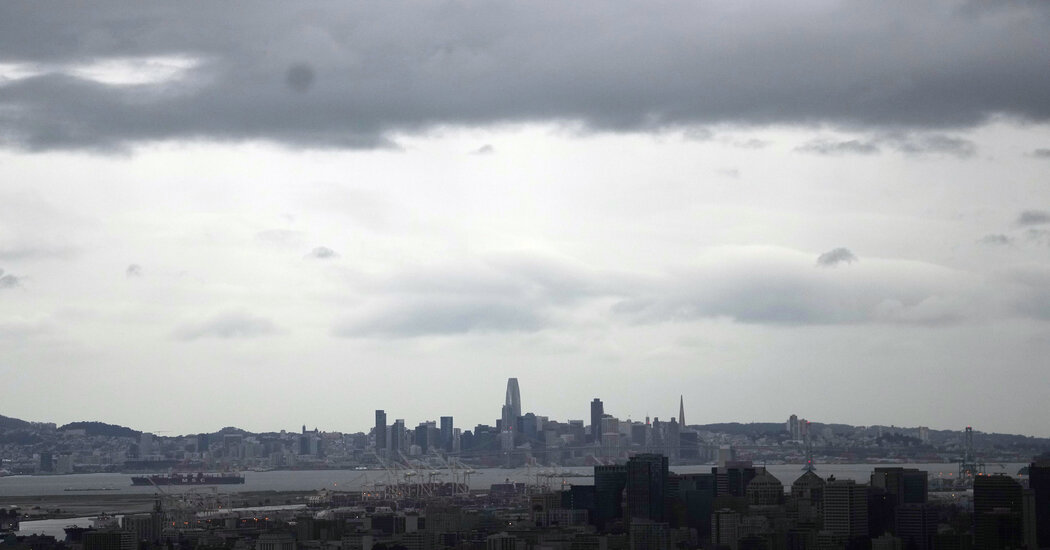Last week, as Californians braced for heavy weather, forecasters found themselves engulfed in a sudden online storm.
“WARNING: Meteorologists are currently debating whether California is about to get hit by something that they’ve been dreading for a long time,” an emergency preparedness enthusiast named Danielle Langlois cautioned on X. “They’re not certain (yet), but it is entirely possible that what is brewing in the Pacific right now heralds the beginning of the dreaded #ARkStorm.”
Ms. Langlois is not a climate scientist or a weather expert. She claims no special knowledge of the “ARkStorm,” a rare atmospheric onslaught modeled by scientists at the United States Geological Survey that would engulf major cities in water. She said later that she is an actor with fewer than 5,000 social media followers, a Californian’s healthy respect for natural disasters and an apartment in the Sherman Oaks neighborhood of Los Angeles.
No matter. Over the next several days, her post went viral while the National Weather Service, the California Governor’s Office of Emergency Services and leading climate scientists rushed to quash the gathering fear that a biblical storm was about to swallow California.
…
As misinformation permeates social media and online platforms, exasperated scientists and emergency officials say they are fighting an increasingly uphill battle to protect the weather report. Natural disaster hoaxes that landed like bad jokes during the Trump administration are now seasonal hazards. Scientific evidence competes online with conspiracy theories and lifelike photos generated by artificial intelligence.
I mean, that’s what they get for trusting a post on Xitter.
Everyone knows HAARP is causing all these storms. That base has gone rouge in support of Trump obviously. Trying to kill off Biden voters before November.
/s
Bounced on my boys antenna to this for hours
annnnddd POST




